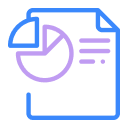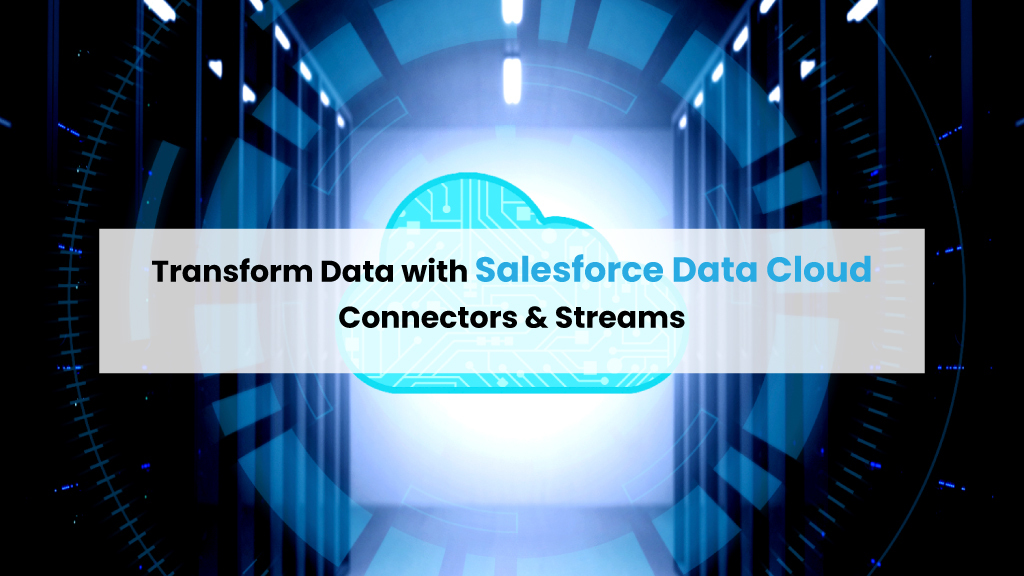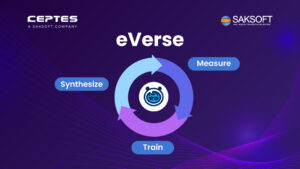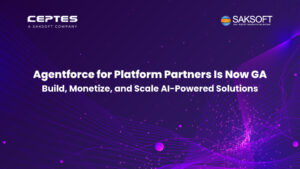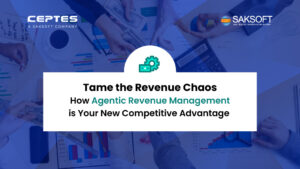In today’s digital era, data generation is skyrocketing. From smartphones and wearable devices to bank accounts and online shopping carts, data is omnipresent. By 2025, it’s estimated that 100 zettabytes (ZB) of data will be stored in the cloud. For context, 1 ZB equals 1,000,000,000,000 gigabytes (GB). As organizations aim to harness this vast data for informed decision-making, seamless integration between systems becomes crucial.
Yet, the biggest challenge to timely project delivery, successful technology adoption, and exceptional customer experiences is the ease of integrating systems.
The Growing Importance of Customer Data Insights for Businesses
Customer data insights have become a strategic asset for organizations across industries. Understanding customers is essential, and leveraging these insights can drive significant business growth through various initiatives.
Hyper-Personalization
Today’s customers expect personalized experiences, from relevant product recommendations to tailored marketing messages. By analyzing data and building a 360-degree view of the customer, businesses can segment their audience, identify individual preferences, and tailor interactions accordingly. This fosters stronger customer relationships and boosts loyalty.
Enhanced Data-Driven Decision-Making
Analyzing customer behavior, purchase patterns, and feedback helps businesses understand what works and what doesn’t. This data-driven approach leads to optimized marketing campaigns, improved product development, and efficient resource allocation.
Predicting Customer Behavior
Customer data insights enable businesses to predict future behavior and proactively address potential issues. Leveraging historical data and predictive models helps anticipate customer needs, resulting in improved customer service, reduced churn, and increased sales opportunities.
Competitive Advantage
Using customer data, businesses can identify emerging trends, understand competitor strategies, and position themselves strategically. This data-driven agility provides a significant competitive edge.
Adapting to Change
Customer data insights equip businesses with the agility to adapt to changing customer needs and market trends. This ensures they remain relevant and responsive, securing long-term success. Effective results require efficiently feeding all this data into analytical platforms, such as Salesforce Data Cloud, which presents several challenges that organizations must address.
What is Salesforce Data Cloud?
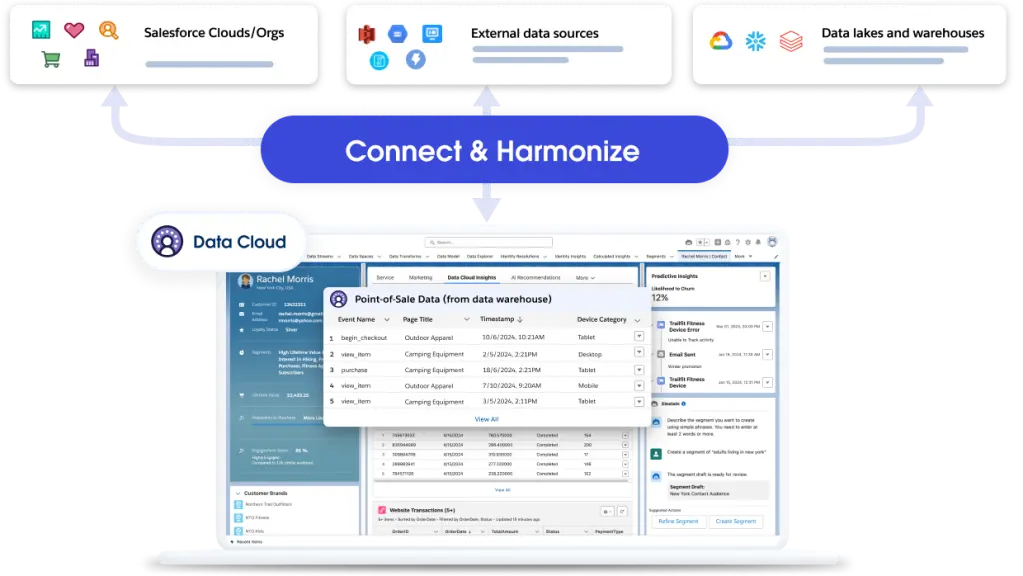
Salesforce Data Cloud, formerly known as Salesforce CDP (Customer Data Platform), is a robust platform designed to unify, enrich, and activate customer data. It serves as the connective tissue between various data sources, applications, and Salesforce products. Data Cloud consolidates a nearly infinite amount of dynamic data to Customer 360 in real-time, continuously updating customer profiles with new data from any touchpoints.
Everything in this unified customer profile record is visible and actionable across Salesforce’s entire suite of products. You can also build custom apps that take advantage of Data Cloud, allowing you to meet customer expectations with apps that reflect their behavior in real-time.
Salesforce Data Cloud supports marketing, sales, service, commerce, Tableau data analytics, MuleSoft integration platform, and more. Its constantly updated data, massive scale, and unified profile also enable:
- Artificial Intelligence: Updates outputs every millisecond.
- Automated Workflows: Adapts instantly based on new data.
- Accuracy in Analytics: Provides an unprecedented level of precision.
Exploring Salesforce Data Cloud Connectors
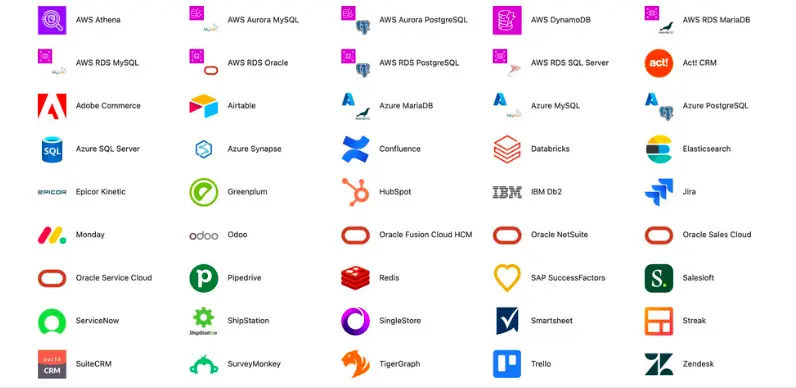
Connectors are the backbone of Salesforce Data Cloud, enabling the integration of data from various sources. Salesforce provides a comprehensive library of out-of-the-box configurable connectors to popular data platforms, including:
- Amazon S3
- Databricks
- Snowflake
- Microsoft Azure
Additionally, Salesforce offers a CRM connector that can be used with related orgs within your implementation or the same org you’re already using. These Salesforce data cloud connectors simplify the process of bringing external data into Salesforce, ensuring that businesses can leverage data from various sources without building complex data pipelines.
Benefits of Using Salesforce Data Cloud Connectors
1. Seamless Integration: Connectors provide a straightforward way to integrate data from different platforms, reducing complexity and saving time.
2. Real-Time Data Access: With connectors, businesses can access and utilize data in near real-time, ensuring decisions are based on the latest information.
3. Standardized Data Formats: Connectors help standardize data from various sources, making it easier to analyze and act upon.
4. Enhanced Data Insights: By integrating data from multiple sources, businesses can gain a comprehensive view of their operations, customers, and market trends.
MuleSoft Salesforce Data Cloud Connector
One way to enhance your Data Cloud is by using the MuleSoft Salesforce Data Cloud Connector. This accelerator automates data ingestion from third parties to enrich the 360-degree view of your customers in your Data Cloud instance. Common use cases include:
- Change Data Capture: Stream changes in records from the source system into Data Cloud in near-real-time using the Streaming Ingestion API.
- Legacy Integration: Schedule daily/weekly/monthly loads of bulk exports from legacy systems using the Bulk Ingestion API.
- Consistent Customer Experience: Publish insights from Data Cloud into upstream systems like CRM using the Query API.
Understanding Data Streams
Once data is connected, data streams control the flow of data between the source and Salesforce. Data streams enable businesses to manage data ingestion, retention, and scheduling, ensuring that data is always current and relevant.
Setting Up Data Streams
Setting up data streams in Salesforce Data Cloud involves several key steps:
1. Connecting to Data Sources: Use the appropriate connector to link Salesforce with external data sources.
2. Creating Data Streams: Define the flow of data from the source to Salesforce, specifying parameters such as data retention and scheduling.
3. Configuring Data Streams: Customize data streams to meet specific business requirements, such as frequency of data updates and data transformation rules.
Benefits of Data Streams
1. Continuous Data Flow: Data streams ensure a continuous flow of data from external sources to Salesforce, keeping data up-to-date.
2. Flexible Scheduling: Businesses can configure data streams to update data at intervals that suit their operational needs, whether in real-time, hourly, or daily.
3. Efficient Data Management: Data streams help manage the complexity of data integration, allowing businesses to focus on analyzing and utilizing data rather than on the mechanics of data transfer.
4. Enhanced Data Quality: By ensuring that data is consistently and accurately updated, data streams improve the overall quality and reliability of business data.
Real-World Applications
Retail Business
A retail business can use Salesforce Data Cloud to integrate data from its e-commerce platform, in-store transactions, and customer service interactions. By harmonizing this data through connectors and Salesforce streams, the business can create a comprehensive customer profile, enabling personalized marketing, proactive customer service, and data-driven decision-making.
Manufacturing Company
A manufacturing company can unify data from inventory management, supply chain logistics, and production schedules. Salesforce streams ensure that this data is continuously updated, providing real-time insights into production efficiency, inventory levels, and supply chain performance. This visibility allows the company to optimize operations and reduce costs.
Sales Teams
Sales teams can leverage Salesforce Data Cloud to integrate data from CRM systems, sales analytics, and market research. Data streams ensure that sales data is always current, enabling sales teams to identify high-value leads, track performance, and predict future sales trends.
Conclusion
Salesforce Data Cloud connectors and data streams are powerful tools that enable businesses to unify, harmonize, and act on data from various sources. By simplifying data integration and ensuring continuous data flow, Salesforce Data Cloud helps businesses gain valuable insights, enhance decision-making, and drive growth.
As highlighted in the Connections keynote, these Salesforce data cloud connectors help customers access and activate their data through three key features:
1. Connect Salesforce Clouds: Easily integrate Sales, Service, Marketing, and Commerce Clouds with just a few clicks.
2. Bring Your Own Data Lake: Seamlessly connect data lakes like Snowflake, Databricks, and Google with Zero Copy ETL, simplifying data integration.
3. Utilize 200 OK Integration Platform, Out-of-the-Box Connectors and APIs: Leverage additional built-in connectors, S3, SFTP, and APIs for smoother data integration.
Having all your data easily integrated, unified, and accessible is the first step toward driving great customer experiences, significantly reducing time to market and enhancing those experiences through a streamlined data layer. It’s also the foundation for your AI strategy and will help make your AI more contextual.
Experience the benefits of Salesforce Data Cloud and turn your data into a strategic asset for your business. Contact us now!
FAQs:
1. How do Data Cloud Connectors improve data accuracy and consistency?
Data Cloud Connectors centralize data by merging multiple sources, eliminating duplicates, and ensuring accurate, consistent, and up-to-date information for analytics and decision-making.
2. Can Salesforce Data Cloud Connectors integrate with non-Salesforce applications?
Yes, Salesforce Data Cloud Connectors can integrate with a wide range of third-party applications, enabling organizations to create a unified data ecosystem across different platforms.
3. What industries benefit the most from using Salesforce Data Cloud and Data Streams?
Industries like retail, healthcare, financial services, and manufacturing benefit significantly as they rely on real-time, data-driven insights to enhance customer experiences and operational efficiency.

Nilamani Das
Nilamani is a thought leader who champions the integration of AI, Data, CRM and Trust to craft impactful marketing strategies. He carries 25+ years of expertise in the technology industry with expertise in Go-to-Market Strategy, Marketing, Digital Transformation, Vision Development and Business Innovation.










